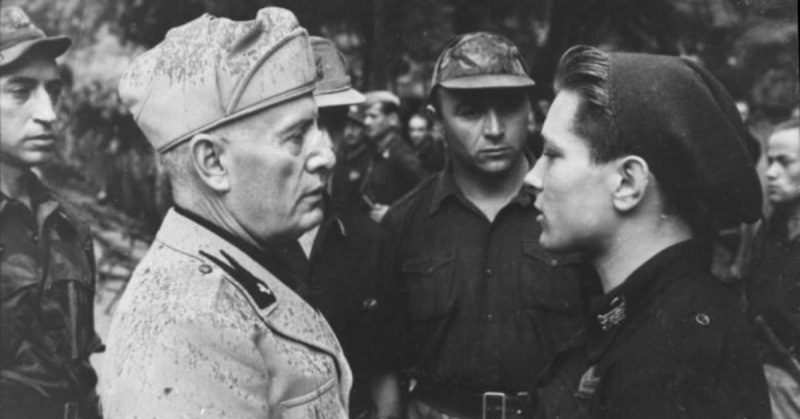Many native Italians were meeting and talking with Allied soldiers. Consequently, the people of Italy really started to rethink their view of the war.
It seems amazing in retrospect that Italian people chose Benito Mussolini for their leader and pressurized the king to make him Prime Minister in 1922. After all, the fact that he escaped to Switzerland in 1902 to avoid military services seemed to have been swept under the carpet. This was hardly a patriotic past for the leader of a country.
Given that Mussolini was the first fascist dictator of Europe, it’s tempting to draw a comparison with Hitler. Before he became the Führer and a ruthless dictator, Hitler was holding nationalist, “motivational” speeches.
But when you compare the past of the two men, there are stark differences. While Mussolini tried several times to avoid his military service, Hitler was a soldier in World War 1 and totally devoted to Germany.
Despite Italy becoming the first ally of the Führer, this fact was downplayed when they surrendered to the Allies at the end of 1943. The Italians convinced the West that their former pact with the Nazis was water under the bridge.
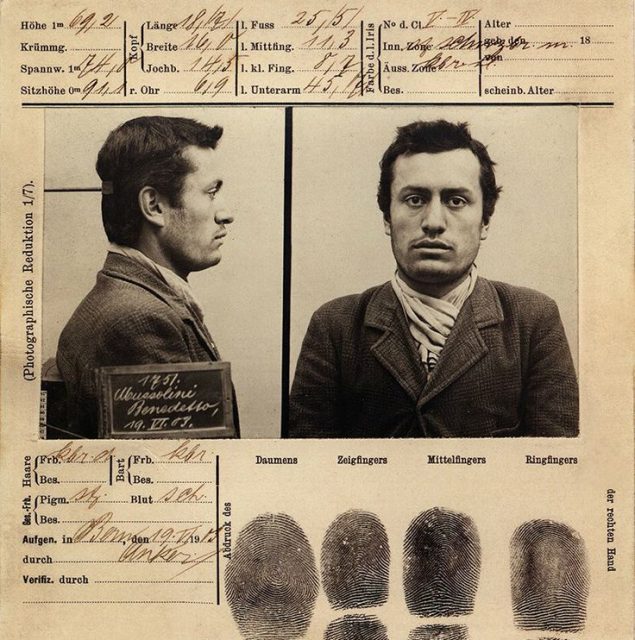
How can one nation make so many mistakes, ranging from leadership to political partnership, war strategy, and submission, yet still be able to pull itself out of the whole situation as the “good” guys?
As Winston Churchill said “It is a mistake to look too far ahead. Only one link of the chain of destiny can be handled at a time.” That certainly seemed to be Mussolini’s strategy, and Italy ending up on the winning side was more a matter of luck and the will of the common people than any strategic planning on the part of Italy’s leaders.
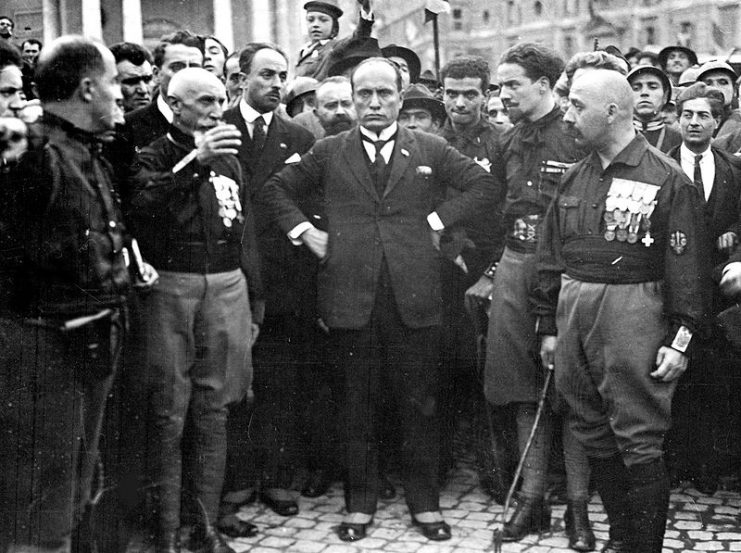
Mussolini’s actions appear to have been motivated by greed for power and maybe even a bit of jealousy caused by the fact that Hitler was gaining so many countries at the beginning of World War 2.
It is said in The Art of War not to invade powers who are smaller than you because it can be a loss of resources and time. But Il Duce went to Africa and invaded Abyssinia, also known as the Ethiopian Empire. After that, he continued his mission of bullying small or unprotected countries by also occupying Albania.
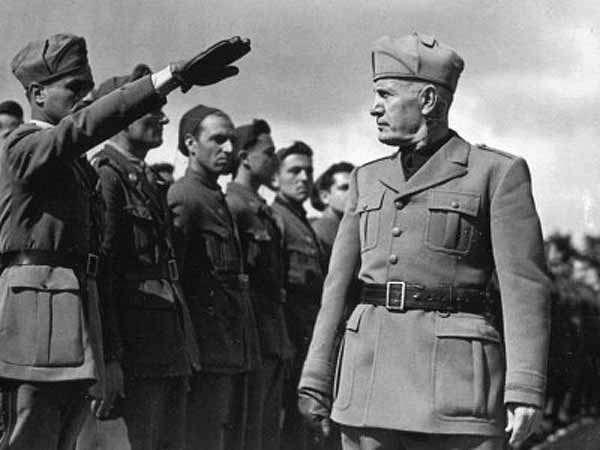
Chamberlain was in charge of Great Britain, and he was a really educated man. Before going to war with Germany, he tried to be political. Millions of propaganda flyers were dropped into Germany by British airplanes.
Italy, on the other hand, appeared to have no exact plan about what they were doing when they decided to attack British forces in Egypt. They failed over and over again until a nickname was picked out for them by Winston Churchill: the “soft underbelly” of Europe.
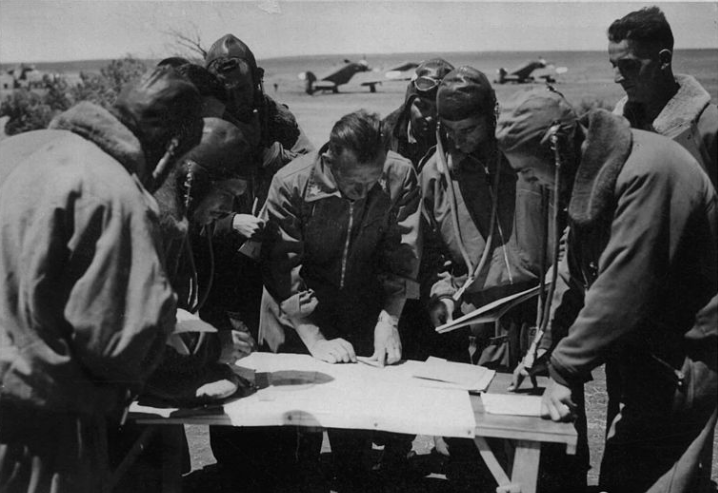
The wheels of war were turning quickly, and matters were not turning out in favor of the Axis powers. With America joining the war and Hitler struggling with the Soviet Union, Italy’s fortunes began to spiral downward, and it seemed the end was near for them.
The Italian high command began switching through inefficient tactics in an effort both to spread their influence and to try and impress Hitler.
They hit a major stumbling block when the Allies were entering Sicily. Many native Italians were meeting and talking with Allied soldiers. Consequently, the people of Italy really started to rethink their view of the war.
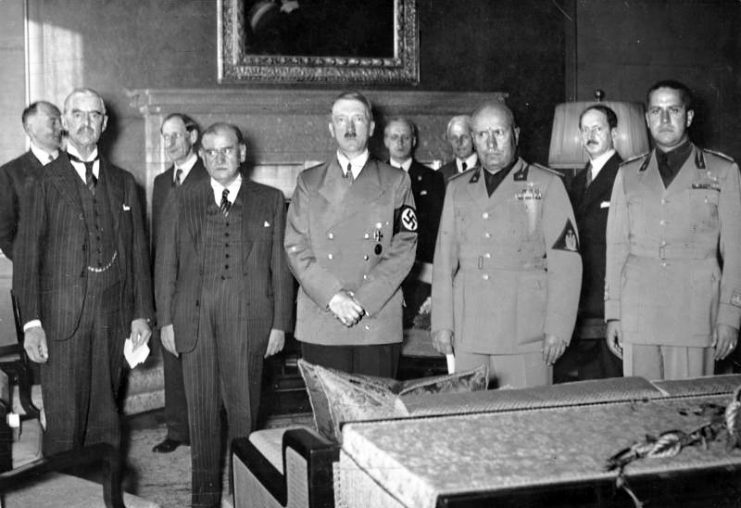
In 1943, many Italians took to the streets to object to their incompetent leader Benito Mussolini. He was voted out of power by his own Grand Council and arrested, only to have a meeting with King Vittorio Emanuele and find out that the war was probably lost.
After that, he was replaced by Pietro Badoglio who took over as Prime Minister. Mussolini had little luck himself since he was subsequently killed by Italian partisans on April 28, 1945, in the small village of Giulino di Mezzegra in northern Italy.
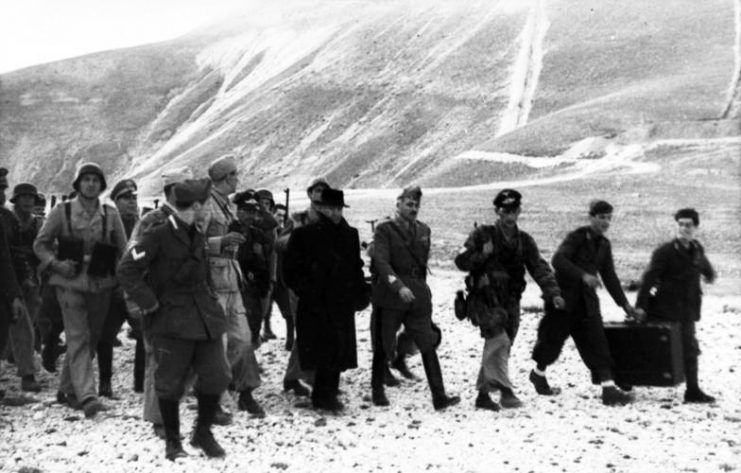
Read another story from us: A Slippery Road: Mussolini’s Disastrous Invasion of Greece
The country was soon left with no option but to surrender. The “soft underbelly” of Europe had made so many reckless choices. Not least of these was joining the war again, but this time fighting against the Axis and those countries to which they’d sworn friendship in 1936.
The Italians ended up on the winning side at the end of World War 2, but this really was down to the people protesting in the streets and clamoring for the downfall of their incompetent leader. If Mussolini had been allowed to remain in power, then Italy’s fortunes might have turned out very differently.
